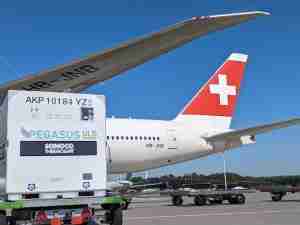A local court has shot down an effort by the Dutch government to limit the number of flights that can go in and out of Amsterdam’s airport between the end of this year and October 2024.
The state had outlined plans to eventually shrink Schiphol Airport’s annual flight capacity to 440,000 flights by 2024, a 12% reduction, with the aim of minimizing noise. As a first step, it proposed a temporary regulation to cap the number of flights over a yearlong period starting in November 2023 at 460,000 — down from the current limit of 500,000.
On Wednesday, however, the district court of Noord-Holland ruled that the government did not follow the correct procedures in introducing its proposal. The decision deals a blow to efforts to balance the growing importance of Schiphol as an aviation hub with the interests of residents in the surrounding area.
The Dutch government said it is considering possible next steps.
The verdict was a win for airlines and their advocates, including the Dutch arm of Air France-KLM and the International Air Transport Association (IATA) lobbying group, both of which had separately challenged the proposed restriction on the grounds that it violates international regulations and inconveniences travelers.
Ruling Brings “Clarity”
Nearly 53 million passengers flew through Schiphol last year. It has the most direct flight connections of any airport in Europe, according to data from Airports Council International Europe, beating out Istanbul and London-Heathrow.
As airlines reorganize their business operations, they expect to be able to count on the current 500,000 flight capacity until a new maximum is set, the court said in its ruling.
KLM, the Dutch arm of AirFrance-KLM, which accounts for close to 60% of traffic at Schiphol, welcomed the decision in a statement on Wednesday, saying it brings “clarity.”
IATA echoed that sentiment, noting that its most pressing priority was to have certainty about the winter schedule. The number of permitted flights for the coming winter season will be determined at the beginning of May.
“This decision gives vital stability for this year to the airlines using Schiphol airport,” IATA Director General Willie Walsh said in a statement.
Balanced Approach
The court also stated that the Dutch government can only reduce an airport’s flight volume after undertaking a specific EU-mandated process.
That process, known as “Balanced Approach,” outlines best practices for implementing airport capacity restrictions for purposes of noise control.
This morning’s ruling does not mean that efforts to limit Schiphol’s capacity are over. Rather, the government’s ability to enact the 440,000-flight limit in 2024 depends on whether it follows the Balanced Approach procedure, according to Hugo Thomassen, managing director of Airport Coordination Netherlands (ACNL), the organization responsible for allocating slots to airlines at Schiphol. This will be determined by the EU.
An EU Commission official previously told Bloomberg that the body expects to be notified after the consultation with stakeholders.
In the meantime, carriers and allies are celebrating.
“Winning this vital reprieve is good news for Schiphol’s passengers, Dutch businesses, the Dutch economy and airlines,” IATA’s Walsh said in the statement. “But the job is not done. The threat of flight cuts at Schiphol remains very real and is still the stated policy of the government,” he said.










